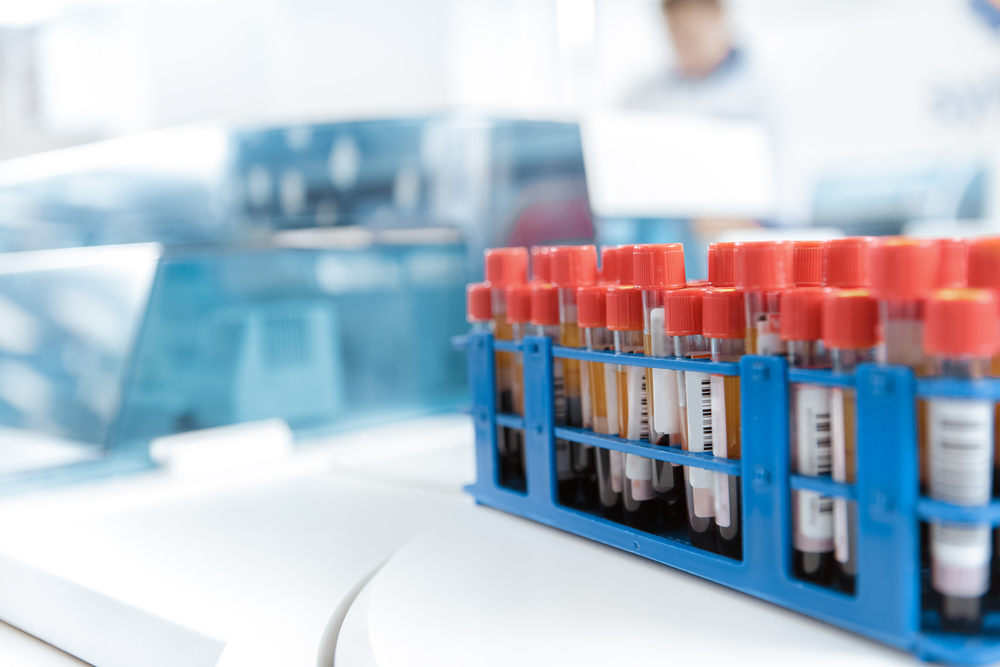A Comprehensive Guide to Pre-Pregnancy Health Checkups

One of the most meaningful and lovely experiences of life is becoming a mother.However, before embarking on this life-changing path, it's essential to ensure that you and your baby are in the best possible health. A complete health checkup before pregnancy is the foundation for a safe and healthy pregnancy. Here we provide a complete guide to health checkup before pregnancy.
What is a Pre-Pregnancy Check-Up?
Before delving into the details of pre-pregnancy health checkups, it's important to understand what they entail. A pre-pregnancy check-up, often referred to as a preconception check-up, is a thorough assessment of a woman's health before she conceives. The primary purpose is to identify and address any potential health issues that could affect a woman's ability to conceive or her baby's well-being during pregnancy. These check-ups are designed to promote a safe and healthy pregnancy, ultimately leading to a successful delivery and a healthy baby. These health checkups before getting pregnant are a vital step in ensuring a smooth and trouble-free pregnancy journey.
Why is a Preconception Check-Up Important?
A preconception check-up is of utmost importance, with a variety of significant benefits. Firstly, it plays a crucial role in identifying any underlying health issues that may hinder conception or pose risks during pregnancy. Early detection allows for timely treatment and management, enhancing the chances of a healthy pregnancy.
What Prenatal Care Providers Can You See for Pre-Pregnancy Examinations?
Selecting the right prenatal care provider is a critical decision in your pre-pregnancy journey. Here are some options to consider:
Family physicians are well-equipped to perform pre-pregnancy assessments. They can provide general healthcare advice, conduct physical examinations, and offer guidance on managing any underlying health issues. Many women find comfort in discussing their family planning with a trusted family physician.
Midwives are experienced in providing care to women throughout their reproductive years. They offer pre-pregnancy counseling, perform physical exams, and discuss lifestyle changes. Midwives often emphasize a holistic approach to healthcare.
Obstetricians are specialists in pregnancy and childbirth. They can conduct detailed assessments and offer expert guidance on preconception health. If you have known health issues or require specialized care, consulting an obstetrician may be the right choice for you.
These specialists focus on high-risk pregnancies. If you have specific medical concerns or conditions that might affect your pregnancy, consulting a maternal-fetal medicine specialist can provide you with expert guidance and care.
Family nurses can provide pre-pregnancy counseling and examinations. They work closely with physicians and can offer valuable support throughout your journey. Many women appreciate the personalized care and attention provided by family nurses.
Nurse practitioners specializing in women's health can provide comprehensive care, including pre-pregnancy check-ups and counseling. They are trained to address a wide range of women's health issues, making them a valuable resource for preconception care.
What Happens at the Health Check-up Before Pregnancy?
A pre-pregnancy health checkup typically includes several important components:
Maintaining a healthy weight is crucial for fertility and a healthy pregnancy. Your healthcare provider will assess your weight and discuss any necessary weight management strategies. Achieving a healthy weight can improve your chances of conceiving and reduce the risk of complications during pregnancy.
Mental health is just as important as physical health during pregnancy. Providers will assess your emotional well-being and provide support or referrals for mental health services if needed. Addressing any mental health concerns before pregnancy can lead to a smoother journey to motherhood.
Urine tests help identify various health issues, including diabetes and kidney problems. These tests are important for detecting conditions that could affect your ability to conceive or pose risks during pregnancy. Early identification and management of these issues can improve your chances of a healthy pregnancy.
Gynecological examinations, such as pelvic exams, check for any issues related to your reproductive organs. These examinations can identify infections, structural abnormalities, or other conditions that might impact your ability to conceive or your pregnancy. Treating these issues before conception is crucial for a healthy pregnancy.
Examinations of the breasts, pelvis, and abdomen are crucial to check for any abnormalities or signs of disease that could affect your health and pregnancy. Early detection of breast issues or abdominal abnormalities can lead to timely treatment and a healthier pregnancy.
Monitoring your blood pressure is essential, as high blood pressure can lead to complications during pregnancy. Early detection and management of hypertension are critical for a safe and healthy pregnancy. Your healthcare provider will assess your blood pressure and recommend necessary interventions.
PAP tests are performed to screen for cervical cancer and detect any abnormalities that may require treatment before pregnancy. Addressing any cervical issues before conceiving is essential for a smooth and healthy pregnancy journey.
Blood tests can identify various conditions, including anemia, infections, and genetic disorders. These tests are vital for assessing your overall health and the health of your potential baby. Your healthcare provider may recommend specific blood tests based on your medical history and risk factors.
Your healthcare provider may discuss genetic screening to assess the risk of inherited diseases or conditions. This information can help you make informed decisions about your pregnancy and take appropriate steps to manage any genetic concerns. Early intervention can significantly impact the health of your future child.
Discussions about contraception are important for family planning. Your provider can help you choose the most suitable method for your needs, ensuring that you are prepared for when you are ready to start your family. Effective contraception is an important aspect of pre-pregnancy care.
Your healthcare provider will review your medical history, including any past pregnancies. This assessment is crucial for identifying potential risk factors and providing personalized guidance. If you have experienced complications in previous pregnancies, addressing them before conceiving again is essential for a safer and healthier pregnancy.
Pre-pregnancy check-ups provide a valuable opportunity to ask questions and address any concerns or uncertainties you may have about conception, pregnancy, and childbirth. Your healthcare provider is there to provide guidance, support, and information to ensure that you feel confident and prepared for your journey to motherhood.
Conclusion:
A pre-pregnancy health checkup is not just a routine medical appointment; it is a critical step in ensuring a safe and healthy pregnancy. These check-ups play a pivotal role in identifying and addressing health issues, optimizing your well-being, and reducing the risk of complications during pregnancy and childbirth. By choosing the right prenatal care provider and undergoing thorough assessments, you are taking proactive steps to ensure a healthy and joyful pregnancy journey. So, take the first step towards a healthy pregnancy by scheduling a pre-pregnancy health checkup at ASTO LABS. Your health and the health of your baby are worth the investment, and this comprehensive guide is here to support you on your extraordinary path to motherhood. A health checkup before pregnancy can provide you with valuable insights into your overall well-being and help you make informed decisions for a healthier journey into motherhood





